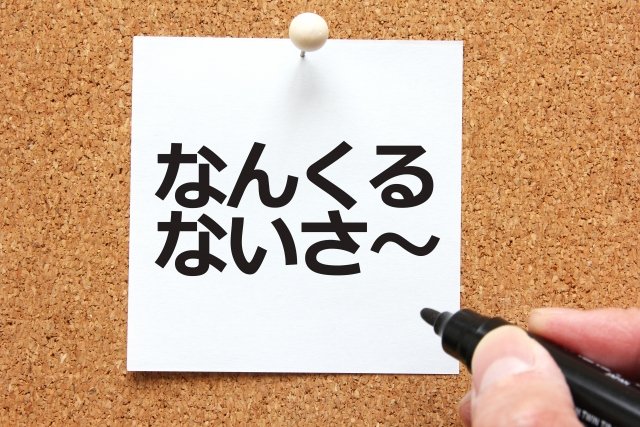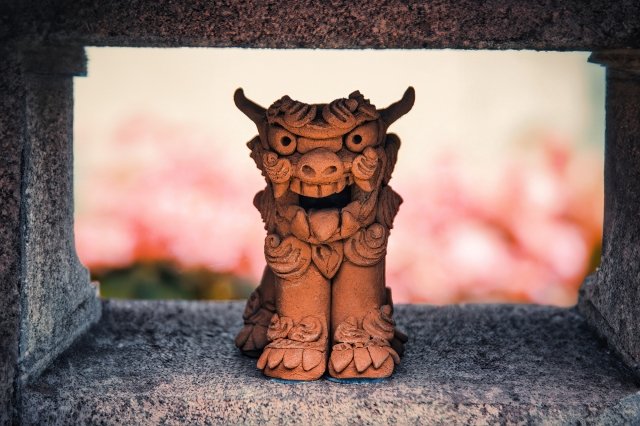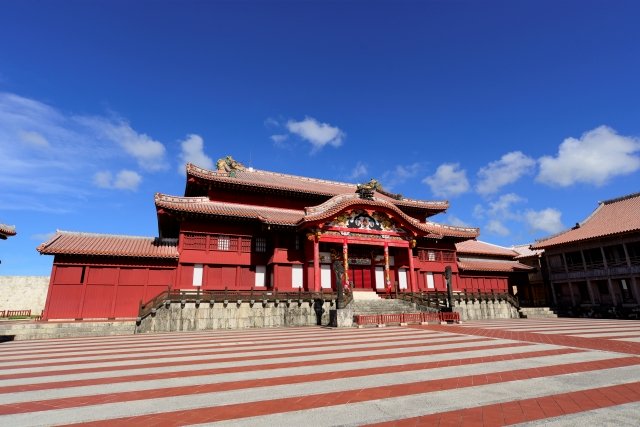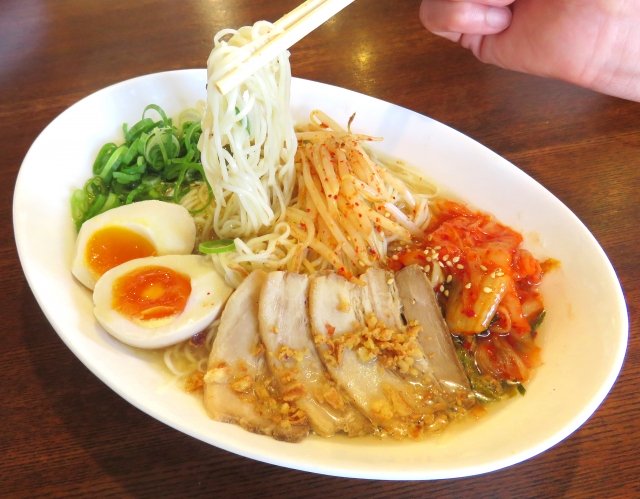There are probably many people from overseas who work in Okinawa.
There are also many foreigners who visit Okinawa for sightseeing.
Okinawa is a land where a culture different from that of mainland Japan has taken root, and is known for its frequent use of “dialects” that differ from the standard language used by people on the mainland.
In other words, it is better to use “greetings in Okinawan dialect and words actively in order to get to know the locals in Okinawa.
In this article, I would like to explain such dialects such as “Thank you” and “Hello” spoken by Okinawans that are different from the standard language.

Click here to learn Japanese language with the best one-on-one Japanese tutoring lessons in person or online.
Contents
- 1 Okinawan dialects and standard Japanese are quite different.
- 2 Dialects commonly used in Okinawa
- 2.1 (1) Hello → “Hai sai” (hello)
- 2.2 (2) See you again → “Mata ya-sai” (see you again).
- 2.3 ③ “Nantoka naru sa(It will work out)” → “Nankuru nai sa” (It will work out)
- 2.4 4) Kan pai -> “kari-“
- 2.5 (5) totemo(Very) -> “tee-ji
- 2.6 (6) Doki-doki suru(pounding) → “chimu-don-don”.
- 2.7 (7) Oisii(Delicious) → “Maasan”.
- 2.8 ⑧ Gangatte(Do your best) → “chibariyo” (do your best)
- 2.9 (9) Arigatou(Thank you) -> “nifue-debiru” (Thank you)
- 3 Conclusion
Okinawan dialects and standard Japanese are quite different.
English is also quite different between American English and British English, and in China there are multiple varieties such as Mandarin, Cantonese, Shanghainese, Taiwanese, and Hong Kong.
Similarly in Japan, there are subtle differences in usage depending on the region.
A well-known dialect is the “Osaka dialect,” which is mainly used in Osaka Prefecture.
The language is quite different from the “standard” language often used around Tokyo. (90% or more of it can be understood by most Japanese).
Naturally, Okinawa, far from the mainland, also has its own dialect.
It is even more different from the standard language than the Osaka dialect, and there are many words and phrases that people from the mainland cannot understand.

Dialects commonly used in Okinawa
Let us list some of the dialects actually used in Okinawa.
If you use them when actually communicating with the locals, you should be able to make a good impression.
(1) Hello → “Hai sai” (hello)
Hello” in English is “konnichiwa” in Japanese standard language, but hello in Okinawa it is “haisai.
If you use this word at the beginning of communication, you will make a good impression that you are a friendly person.
For your information, “haisai” is used by men, but “haitai” is used by women.
(2) See you again → “Mata ya-sai” (see you again).
The phrase that makes a good impression when used at the end of a conversation is “Mata ya-sai(see you again).
This word has the same meaning as “bye” or “see you” in English and “sayonara” or “Matane” in Japanese.
For men, it is “mata ya-sai”, but for women, it is “mata ya-tai”.

③ “Nantoka naru sa(It will work out)” → “Nankuru nai sa” (It will work out)
It will work out!” and “Everything will be alright.” In English, this Japanese phrase has the same meaning as “nantoka naru yo,” but in Okinawa, it is called “Nankuru nai sa.
Although it does not appear in conversation very often, it is likely to be appreciated when used, as it is a word that is representative of Okinawan flights.
It is a very positive word because it does not have a throwaway nuanced meaning, but rather a meaning of “things will surely turn out well.
4) Kan pai -> “kari-“
The Japanese word “kan pai” has the same meaning as the English word “cheers,” but in Okinawa, it is called “kari-“.
If you are having a meal or a drink with Okinawan people in Okinawa, you should definitely use this word for drinking.
(5) totemo(Very) -> “tee-ji
The Japanese equivalent of the English word “very” is “totemo,” but in Okinawa it is “tee-ji.
” You can use “tee-ji suki” as in “tee-ji oisii”.
In addition to “tee-ji,” “ippei” is also used in the same way.
(6) Doki-doki suru(pounding) → “chimu-don-don”.
The Japanese word “Doki-Doki-suru” has the same meaning as the English word “Throb,” but in Okinawa it is “Chimu-don-don.
You can use like “the sea is so beautiful, chimu-don-don-sa”.
(7) Oisii(Delicious) → “Maasan”.
The Japanese word “oisii” has the same meaning as the English word “delicious,” but in Okinawa it is “maasan.
When you eat food prepared by Okinawan people or at an Okinawan restaurant or izakaya, you should definitely say “maasan”.
If you say “Teiji, Maasan” or “Ippei, Maasan” with “Teiji” or “Ippei, Maasan” meaning “very” first, you will get a more delicious nuance.

⑧ Gangatte(Do your best) → “chibariyo” (do your best)
The Japanese equivalent of “ganbatte” in English is “ganbatte” (do your best), but in Okinawa it is “chibariyo”.
If you become friends with Okinawan people, or if you find yourself in a situation where you need to cheer them up during a conversation, they will be happy to hear you say “chibariyo”.
(9) Arigatou(Thank you) -> “nifue-debiru” (Thank you)
The Japanese equivalent of “arigatou” in English is “arigato” (thank you), but in Okinawa, it is “nifue-de-biru”.
When used in the past tense, it is “nifue-de-bitan”.
Conclusion
In this article, I have explained about dialects such as “Arigatou” and “Konnichiwa” spoken by Okinawans, which are different from the standard language.
What do you think?
I hope you could understand that there is a big difference in the words used in greetings and daily conversation, even though we live in the same country.
If you remember some commonly used words and try to use them in conversation with Okinawans, you may be pleased with the results.
Related article:










